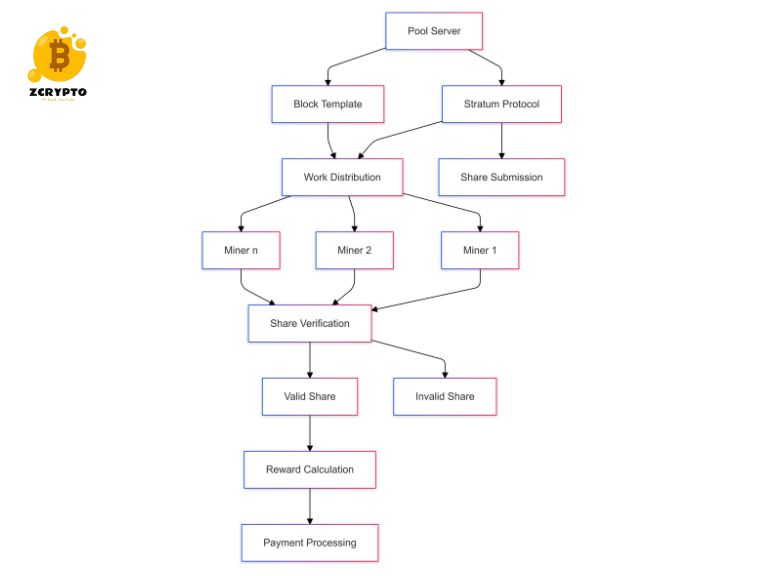What is an Evergreen Contract?
An evergreen contract is a type of contract that automatically renews for successive periods unless one of the parties provides notice of termination. This contrasts with fixed-term contracts, which have a specific end date and require renegotiation or renewal at the end of each term.
- What is NFT Marketplace? – ZCrypto
- Understanding Deficits: Impact on Economy, Investment, and Financial Stability
- How Forward Exchange Contracts Protect Your Business from Currency Fluctuations
- What is Move to Earn? A Technical Analysis of Performance-Based Cryptocurrency Rewards
- Understanding Default Rates: How to Measure and Manage Credit Risk in Finance and Investment
For example, if a company enters into an evergreen contract for software support services, the contract will continue indefinitely until either the company or the service provider gives notice to terminate. This eliminates the need for frequent renegotiations and ensures continuous service without interruptions.
Bạn đang xem: Unlocking Stability: How Evergreen Contracts Revolutionize Business and Finance
The legality and enforceability of evergreen contracts vary across different jurisdictions. However, they are generally recognized as valid and enforceable in many countries, provided they comply with local laws and regulations.
Key Characteristics of Evergreen Contracts
Automatic Renewal
One of the hallmark features of evergreen contracts is their automatic renewal. Unless terminated by one of the parties, these contracts will continue for successive periods. This ensures that services or relationships are maintained without the need for constant renegotiations.
Continuous Relationship
Evergreen contracts foster continuous relationships between parties. Whether it’s a service agreement or a rental lease, these contracts ensure that the relationship remains ongoing without frequent interruptions. This stability is particularly beneficial for businesses that rely on consistent services or supplies.
Termination Notice
A crucial aspect of evergreen contracts is the requirement for a termination notice. If either party wishes to end the contract, they must provide a specified notice period before the termination can take effect. This notice period varies depending on the terms of the contract and local laws.
Flexibility
Despite their automatic renewal nature, evergreen contracts offer a degree of flexibility. They allow businesses to maintain relationships without the hassle of annual renegotiations, which can be time-consuming and costly. This flexibility is especially valuable in industries where predictability and continuity are essential.
Applications of Evergreen Contracts
Service Agreements
Xem thêm : What is Nansen? Data Analytics Platform for Web3 Intelligence
Evergreen contracts are widely used in service agreements, such as maintenance services, software support, and internet services. These contracts ensure that critical services continue uninterrupted, which is vital for businesses that rely on these services for their operations.
Rental Agreements
In the real estate sector, evergreen clauses are often included in rental leases. This ensures continuity for both landlords and tenants, providing stability and predictability in rental arrangements.
Healthcare Plans and Insurance
Evergreen contracts are also applied in healthcare plans and insurance policies. These contracts ensure continuous coverage for individuals and families, eliminating the need for frequent renewals or changes in coverage.
Supply Contracts
In manufacturing and retail sectors, evergreen contracts are used to maintain a steady supply of materials or products. This ensures that production lines remain operational and inventory levels are consistently managed.
Benefits of Evergreen Contracts
Reduced Administrative Burden
One of the significant benefits of evergreen contracts is the reduction in administrative burden. By automating contract renewals, businesses can save time and resources that would otherwise be spent on frequent negotiations.
Financial Stability
Evergreen contracts provide financial stability by giving businesses and consumers a clear view of upcoming expenses. This predictability helps in budgeting and financial planning, reducing the risk of unexpected costs or service interruptions.
Long-term Partnerships
These contracts play a crucial role in maintaining long-term partnerships. By ensuring continuous relationships, evergreen contracts foster trust and stability between parties, which is essential for long-term business success.
Challenges and Considerations
Flexibility Limitations
While evergreen contracts offer many benefits, they also have some limitations. For businesses or individuals who prefer regular renegotiations or flexibility in contract terms, evergreen contracts might not be ideal. This lack of flexibility can be a drawback for those who need to adjust terms frequently.
Rate and Term Changes
Xem thêm : How to Manage and Reactivate a Dormant Bank Account: A Comprehensive Guide
Changes in contract provisions, such as rate increases, can be challenging to manage within an evergreen contract. It is important to have clear mechanisms for handling such changes to avoid disputes or misunderstandings.
Jurisdictional Variations
Understanding local regulations and laws governing evergreen contracts is crucial. Jurisdictional variations can affect the enforceability and terms of these contracts, so it’s essential to comply with all relevant legal requirements.
Case Studies and Examples
Shipping and Logistics
In the shipping industry, evergreen contracts can prevent unexpected rate increases and ensure continuous service. For example, a logistics company might enter into an evergreen contract with a shipping provider to secure stable rates and service levels over an extended period.
Subscription Services
Companies like Netflix and Coursera use evergreen contracts to ensure uninterrupted service delivery. These contracts automatically renew each month or year unless the subscriber cancels their subscription, providing continuous access to services without interruptions.
Healthcare and Insurance
Healthcare plans and insurance policies often utilize evergreen contracts for continuous coverage. For instance, health insurance providers may offer policies that automatically renew each year unless the policyholder gives notice to cancel or change their coverage.
Managing and Terminating Evergreen Contracts
Termination Procedures
Terminating an evergreen contract involves following specific procedures. This typically includes providing a notice period as specified in the contract terms. Failure to comply with these procedures can lead to disputes or legal issues.
Voluntary Extensions
In some cases, contracts may include provisions for voluntary extensions. For example, certain contracts designated by USAC (Universal Service Administrative Company) may allow for voluntary extensions under specific conditions.
Legal Compliance
Managing evergreen contracts requires strict compliance with legal requirements and jurisdictional regulations. Ensuring that all contractual terms and termination procedures align with local laws is essential to avoid legal complications.
Nguồn: https://earnestmoney.skin
Danh mục: Blog


















